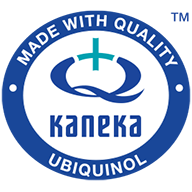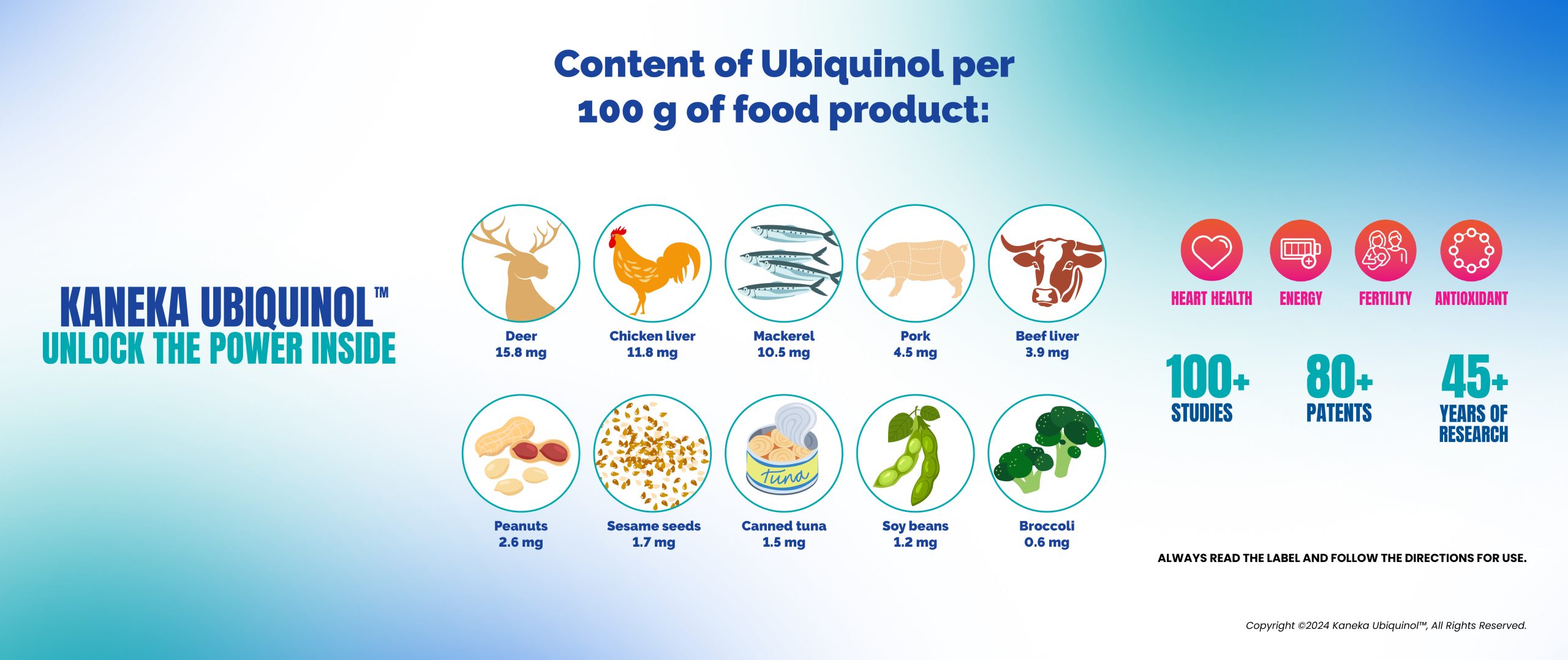
Ubiquinol: The Overlooked Nutrient for Vegans and Vegetarians
Oct 2024Recent Article
Ubiquinol Deficiency in Plant-Based Diets
A 2022 study published by Nutrafoods revealed that vegans and vegetarians have significantly lower plasma Ubiquinol levels than their omnivorous counterparts. This deficiency is important to note as it can have a noticeable impact on energy levels, antioxidant protection, and overall health, particularly with increased age.
Ubiquinol plays a crucial role in maintaining redox balance, helping to manage levels of oxidative stress. Lower Ubiquinol levels can compromise this balance, leading to increased oxidative stress, a process that has been linked to accelerated ageing and chronic disease risk.
What the Research Says About Ubiquinol Deficiency in Vegans and Vegetarians
STUDY: CoQ10/Ubiquinol concentrations in vegetarians and vegans compared with omnivores
60 healthy Japanese men and women aged between 20-65 years split into omnivore and vegetarian/vegan groups (18 vegetarians, 12 vegans, 30 omnivores), and their plasma CoQ10 and Ubiquinol levels were evaluated.
KEY FINDINGS: Mean plasma total CoQ10 and Ubiquinol concentrations in the vegetarian/vegan group were 23.3%% lower than that in the omnivore group. This suggests that the vegetarian/vegan group may be at a higher risk for developing health issues relating to sleep and fatigue due to the differences in their dietary habits.
Why are Vegans and Vegetarians at Higher Risk of Deficiency of CoQ10 and Ubiquinol?
Limited dietary sources
Although the body can produce CoQ10 endogenously, the levels of the active compound Ubiquinol decrease naturally with age, therefore the body relies on dietary sources of Ubiquinol to replenish levels.
An estimated 25% of dietary Ubiquinol is derived from a diet that includes meat, fish, dairy, and eggs – so while it is challenging to achieve adequate Ubiquinol levels in any diet, it proves to be a greater challenge for those with a vegan or vegetarian diet as these foods are off-limits.
Reduced conversion efficiency
The human body must convert dietary CoQ10 into Ubiquinol, a process that becomes less efficient with age, stress, and illness. Vegans and vegetarians with lower CoQ10/Ubiquinol intake due to dietary restrictions may struggle with this conversion more than their omnivore counterparts.
It’s not all bad news, however, as vegans and vegetarians were noted as having a higher intake of other antioxidant nutrients derived from a diet that is typically higher in nutrient-rich fruits and vegetables. This showed that vegan/vegetarians had reduced levels of oxidative stress and a higher ratio of ubiquinol/total CoQ10 compared to omnivores.
The missing piece is the lower Ubiquinol status: with only 25% of Ubiquinol being derived in the diets of omnivores, and with an ageing population whose Ubiquinol levels are naturally declining, there is a strong case to be made for Ubiquinol supplementation to support healthy plasma Ubiquinol levels amongst vegans, vegetarians and omnivores alike.
Always read the label and follow the directions for use. Consult your healthcare professional to establish if Ubiquinol is suitable for your needs.
Reference:
Yamaguchi T, et al. Lower plasma coenzyme Q10 concentrations in healthy vegetarians and vegans compared with omnivores. Nutrafoods 2022(1):379-386.
You can share this by:
Keep up-to-date with Ubiquinol News
Ubiquinol Headlines
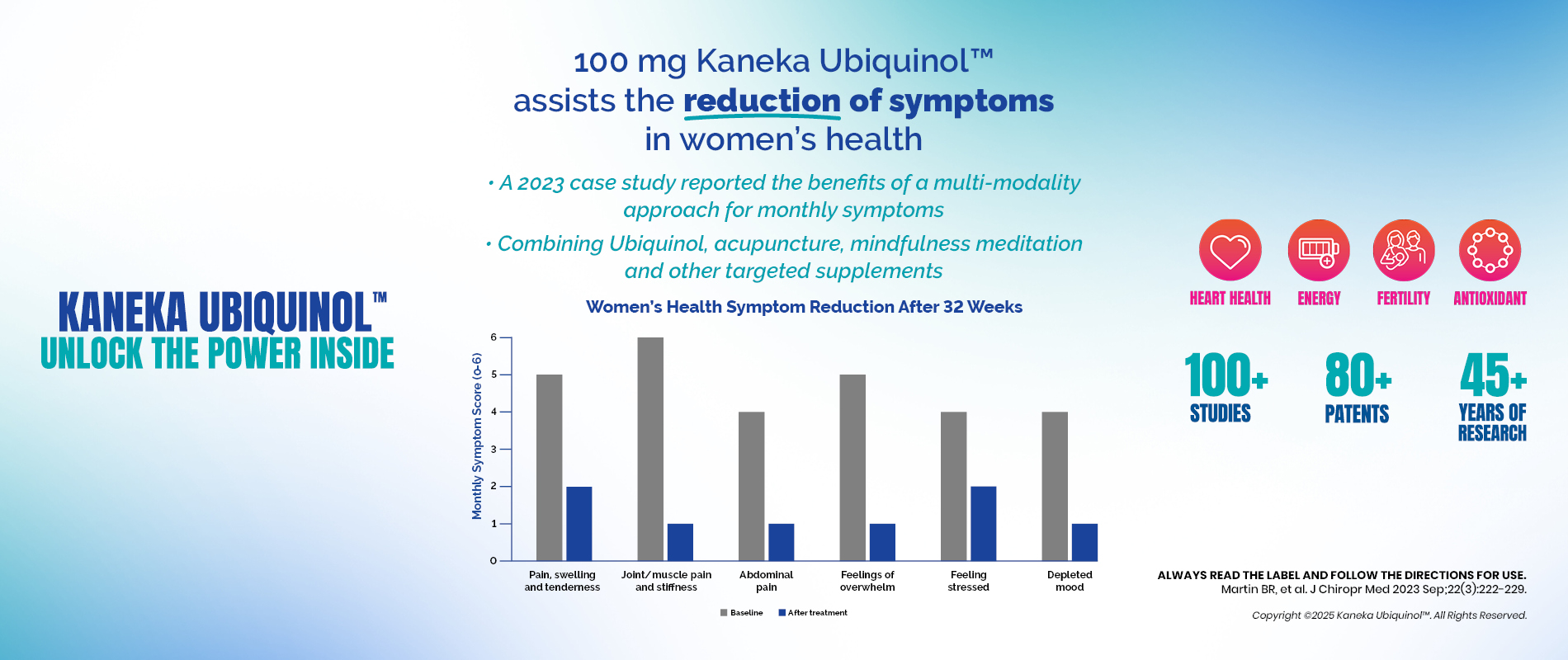
Ubiquinol for Women’s Health
Apr 2025Category: Ageing, Antioxidants, Fertility, Kaneka, Mitochondrial health, Ubiquinol, wellness, Women's HealthRead More
Kaneka Ubiquinol™ at APP 2025: Advancing Healthy Ageing & Longevity
Mar 2025Category: Ageing, Antioxidants, APP, Conference, Conferences, Energy, Fatigue, Health, Health Industry, healthy ageing, Kaneka, Mitochondrial health, Nutrition, UbiquinolRead More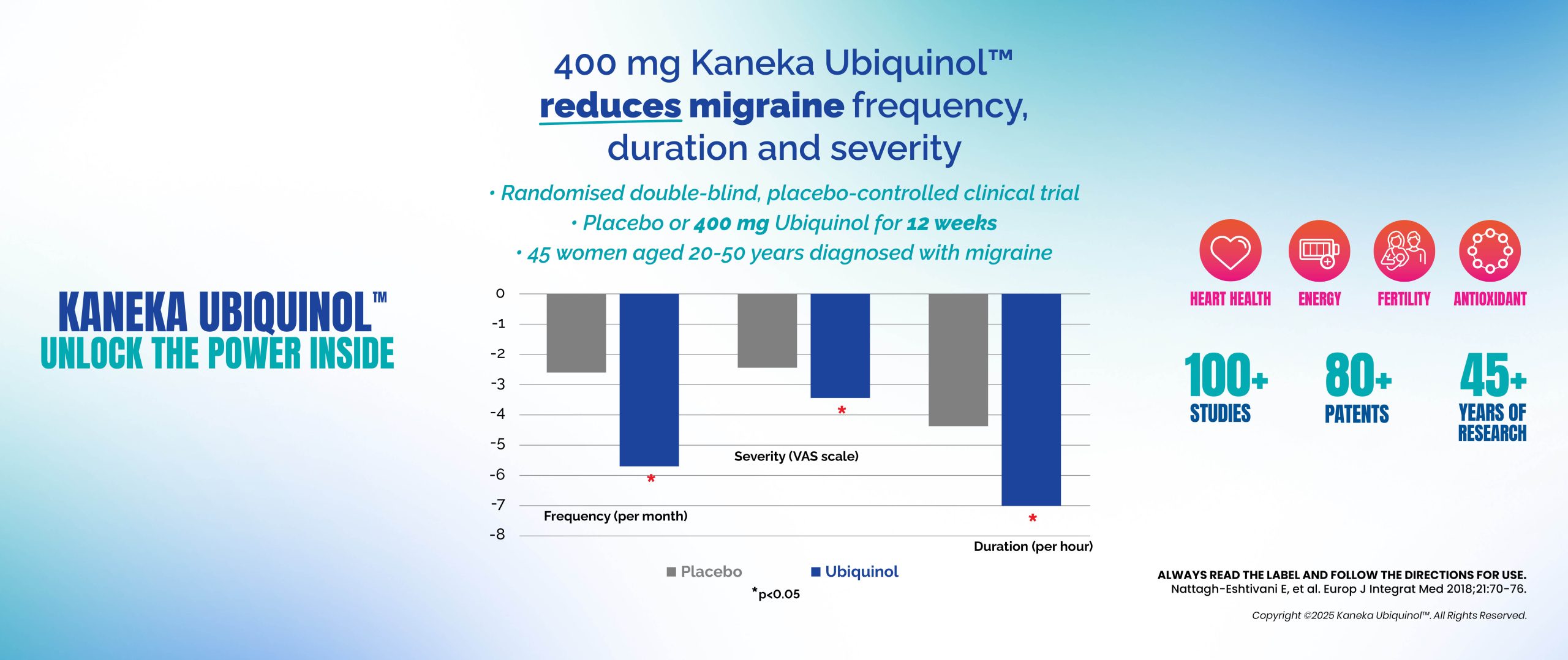
Ubiquinol: Supporting Migraine Relief Through Cellular Energy
Jan 2025Category: Antioxidants, complementary medicine, Energy, Fatigue, Health, Health Industry, healthy ageing, Kaneka, Mitochondrial health, Nutrition, Stress, Ubiquinol, Vitamins, wellnessRead More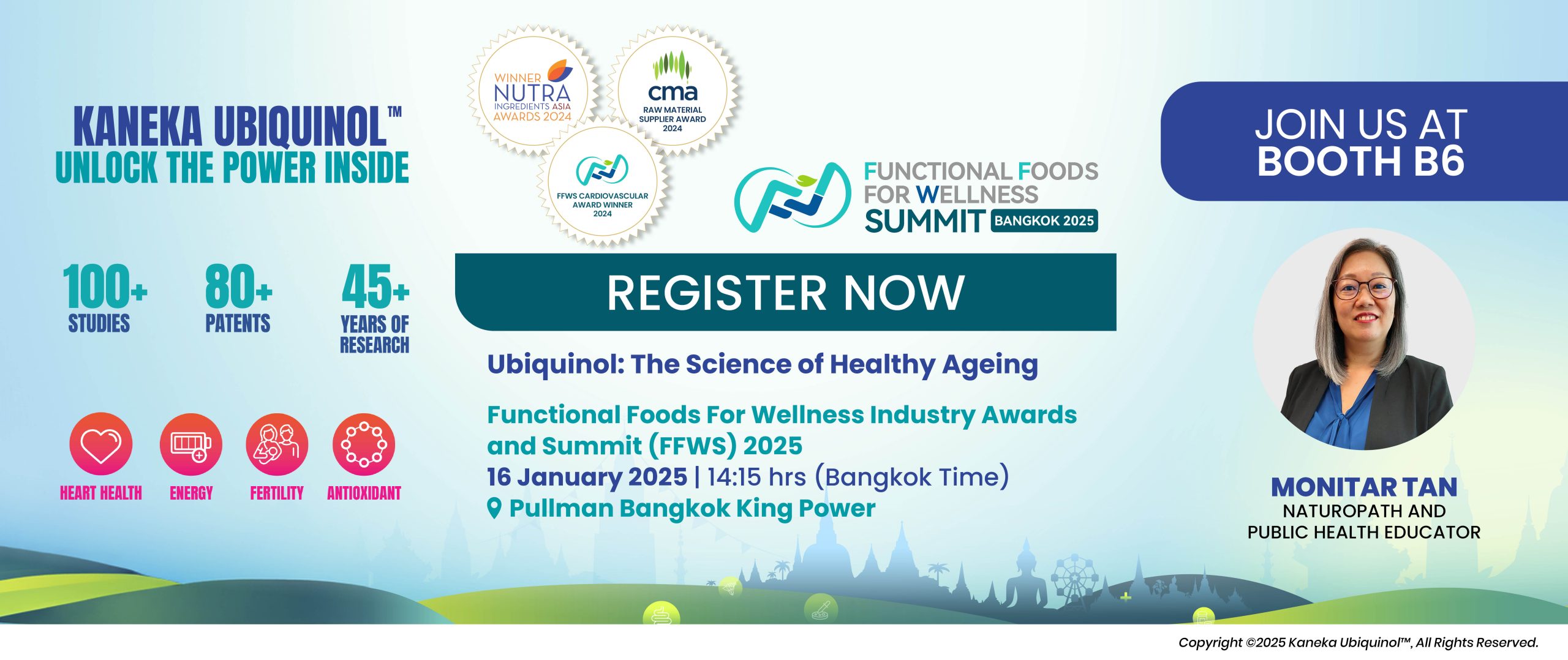
Kaneka Ubiquinol™ at Functional Foods for Wellness Industry Awards and Summit, #FFWS2025
Jan 2025Category: Ageing, Antioxidants, Awards, cardiovascular health, Conference, Conferences, Energy, Fatigue, FFWS2025, Health, Health Industry, healthy ageing, Kaneka, Menopause, Mitochondrial health, Nutrition, Ubiquinol, VitaminsRead More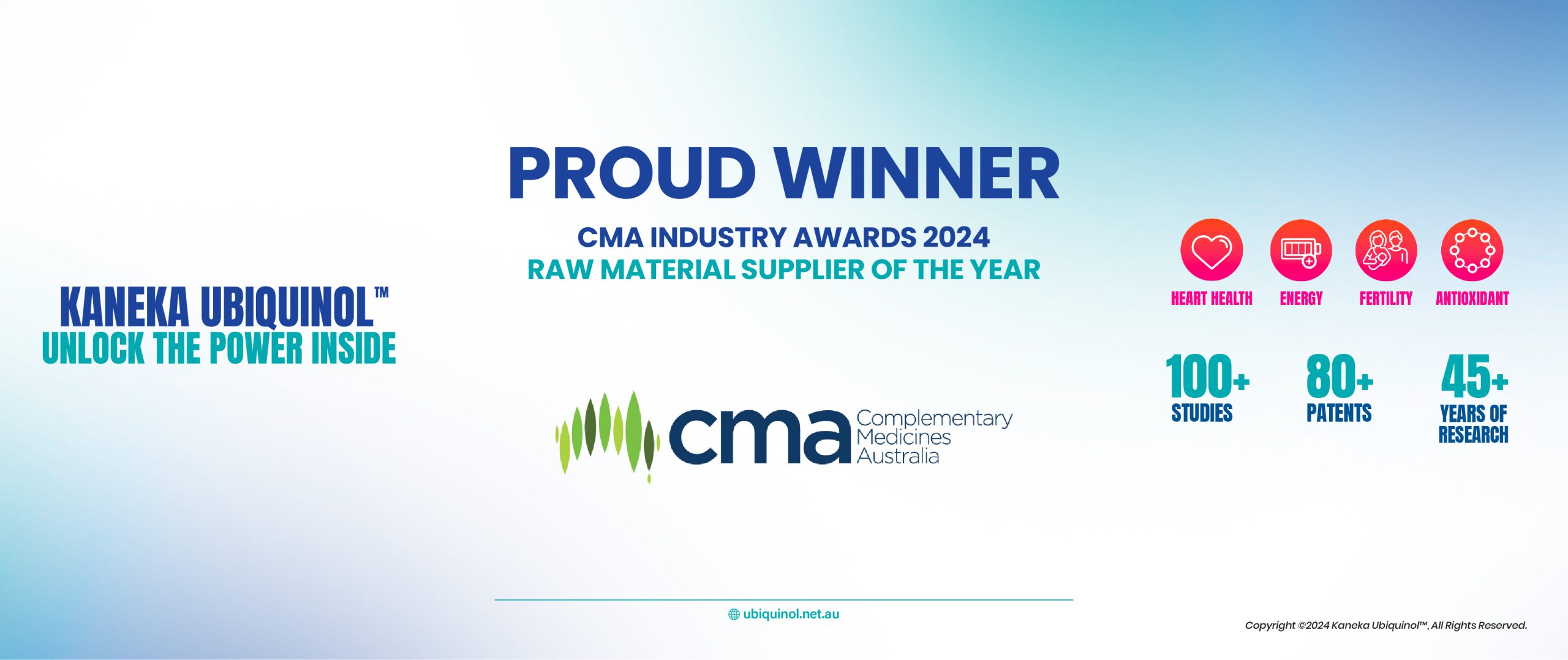
Kaneka Ubiquinol Wins Prestigious Complementary Medicines Raw Material Supplier of the Year Award 2024
Dec 2024Category: Ageing, Awards, cardiovascular health, complementary medicine, Conference, Conferences, Endurance, Energy, Fatigue, Fertility, Fitness, Health, Health Industry, healthy ageing, Heart, Immunity, In The News, Kaneka, Lungs, Memory, Mitochondrial health, Nutrition, Online, Stress, Ubiquinol, Vitamins, wellnessRead More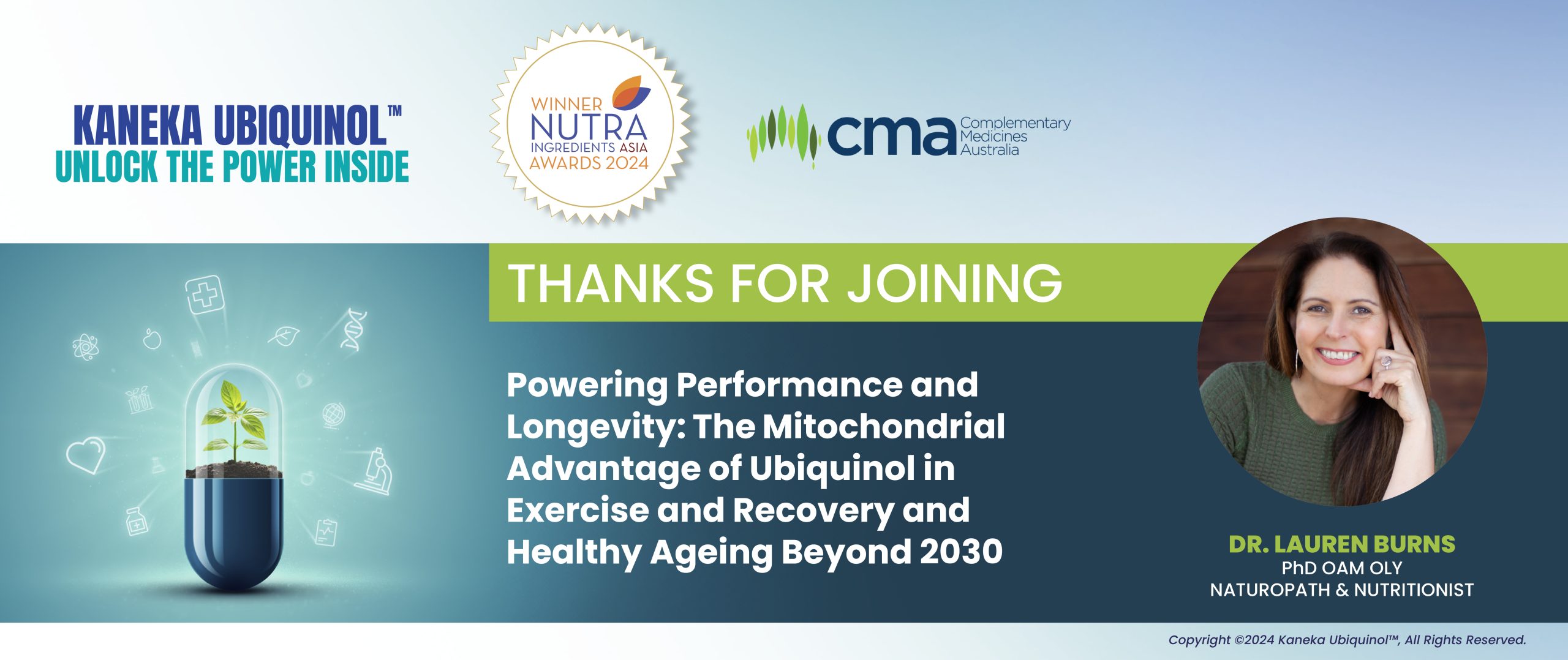
“Powering Performance and Longevity: Kaneka Ubiquinol™ at the CMA Annual Conference 2024”
Nov 2024Category: Ageing, Antioxidants, Awards, cardiovascular health, chronic fatigue syndrome, complementary medicine, Conference, Conferences, Endurance, Energy, Fatigue, Fertility, Fitness, Health, Health Industry, healthy ageing, Heart, In The News, Kaneka, Mitochondrial health, Online, Ubiquinol, VitaminsRead More
Natural Health Product Innovation Expo 2024
Nov 2024Category: Ageing, Antioxidants, cardiovascular health, Cholesterol, chronic fatigue syndrome, Conference, Conferences, Endurance, Energy, Fatigue, Fertility, Fitness, Health, Health Industry, healthy ageing, Heart, Kaneka, Menopause, Mitochondrial health, NHNZ, Nutrition, Stress, Ubiquinol, Vitamins, wellnessRead More
